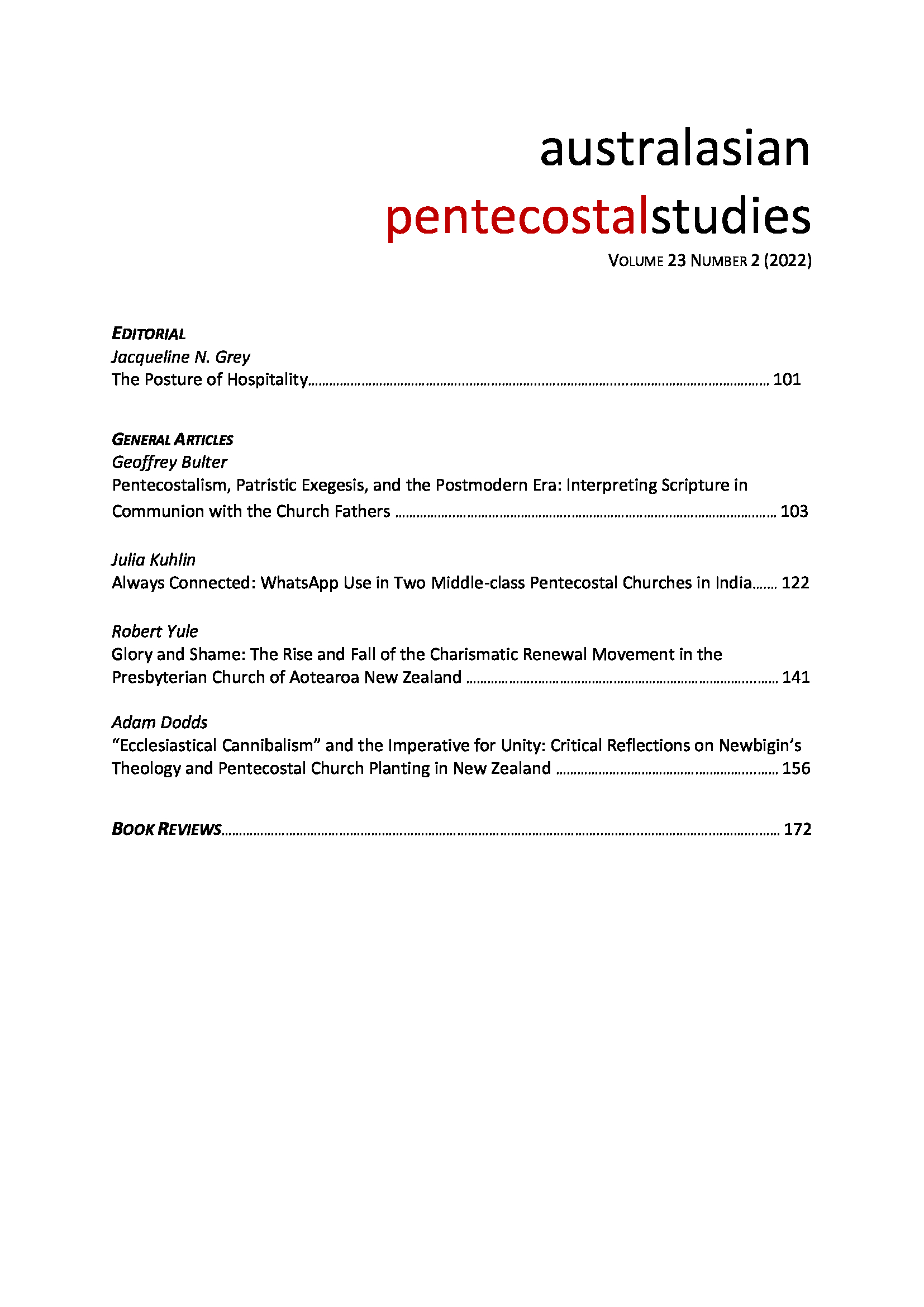“Ecclesiastical Cannibalism” and the Imperative for Unity
Critical Reflections on Newbigin’s Theology and Pentecostal Church Planting in New Zealand
Abstract
Lesslie Newbigin (1909-1998) developed a theology of church unity that remains relevant for the twenty-first century Pentecostal church. First, in this paper, a sketch of Newbigin’s theology of church unity is offered, focusing on his interpretation of John 17:20-23. Central to his theology is that church unity is for mission. Second, I will critically reflect on my own observations as a church pastor of a questionable church-planting practise, arguably not unknown in Pentecostal contexts. Such practises, I will argue, amount to “ecclesiastical cannibalism,” and undermine the church’s mission. Third, Pentecostal hesitancy toward church unity is examined, and possible reasons for it are offered and critiqued. It is suggested that cultural compromise with consumerism, as expressed in the crude growth metrics of “bums, bucks, and buildings,” is a cause of ecclesiastical cannibalism. This article aims to unmask unfaithfulness to Christ, promote the church’s pure devotion to Christ, and contribute to the nascent upsurge in church unity amongst Pentecostals. Several constructive steps for ecclesial praxis are proposed for the sake of the church’s mission.
Published
How to Cite
Issue
Section
License
Authors who publish with this journal agree to the following terms:
- Authors retain copyright and grant the journal right of first publication with the work simultaneously licensed under a Creative Commons Attribution License that allows others to share the work with an acknowledgement of the work's authorship and initial publication in this journal
- Authors are able to enter into separate, additional contractual arrangements for the non-exclusive distribution of the journal's published version of the work (e.g., post it to an institutional repository or publish it in a book), with an acknowledgement of its initial publication in this journal.
- Authors are permitted and encouraged to post their work online (e.g., in institutional repositories or on their website) prior to and during the submission process, as it can lead to productive exchanges, as well as earlier and greater citation of published work (See The Effect of Open Access).


